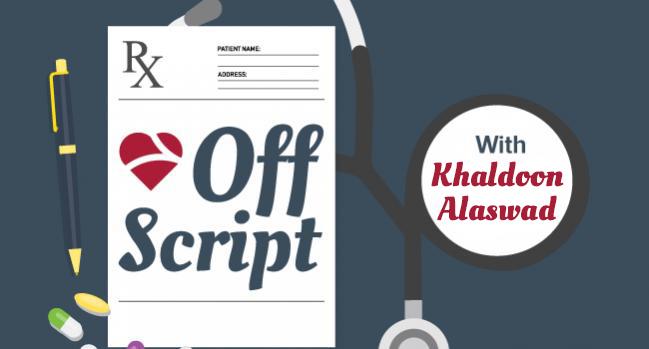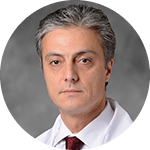Abuse, Humiliation, and ‘Pimping’ Will Not Toughen Up Our Trainees
Those who lead and teach us should embody empathy and model the best behaviors, not thrive on abuse and humiliation.

"Listen, you stupid @#$%&!, we do not use a C-clamp!"
Those were the words screamed at me over the phone by one of the most senior cardiologists overseeing my fellowship during my first month of training in general cardiology. His words left me speechless at first, then feelings of humiliation and isolation set in. I had to spend the next 3 years training in his department, powerless to protest his behavior: he was academically accomplished and held in high regard amongst interventional cardiologists around the globe.
If I complained, I might create a bigger target on my back, be fired, or worse, commit career suicide before I ever finished my training. I couldn't quit: I had sacrificed so much to get to this point.
Like many victims of abuse, I blamed myself.
At the time, I didn't recognize that this was his way of asserting power and dominance over others in order to establish the hierarchy for how he would relate to fellows for the rest of their careers. I went home that night very upset, but true to the pattern of victimization, I didn't tell anyone, not even those closest to me. I didn't even tell my wife. Over time, my relationships with the people I loved inevitably suffered, including my marriage, because of the increased stress and loss of dignity experienced during my training.
In the years it's taken me to process the abuse I suffered during my general cardiology training, I've learned that it unfortunately wasn't an isolated incident. Like me, many other fellows in that program had to navigate demanding training while trying to avoid insults and physical, psychological, and emotional abuse.
"Are you wearing f— pink panties?" one attending would ask his male fellows if they hesitated too long with an answer or action. The same man made fun of my foreign accent and called another fellow of Southeast Asian ancestry a “monkey,” which prompted this trainee to change careers. One fellow was grabbed by the attending and shaken from the collar of his white coat. I, too, was grabbed and shoved. A trainee suffered an MI after being humiliated in front of his peers. One female fellow dropped out of training after 1 year, while another stuck with the program but was subjected to crude, sexualized taunting.
Attendings, as well as nurses and techs at highly regarded academic institutions, all have told me stories about their more senior leaders committing shameful acts, including intentionally spraying trainees with blood, or using the patient’s own blood to doodle.
For a long time, sexist, racist, and discriminatory attitudes have been hidden behind the high societal regard for doctors as well as the facade of academia, making it harder for the victims to speak up. Medical institutions, universities, and professional societies typically overlook bullying, instead looking only at a person’s number of publications, then promoting them into positions that allow them to continue their persecution of others.
Despite the #MeToo, Black Lives Matter, and diversity, equity, and inclusion movements, victimized doctors still feel unsafe: everyone who has spoken to me about their abuse, even those who now hold powerful positions, asked to remain anonymous for fear of being cast out by the cardiology community or for fear of reprisals.
All these years later, I am writing about this abuse of power in part to stand up for myself and others but also because it's clear this intimidation and aggression continues to happen. Worse, I believe that cardiology, and especially interventional cardiology, lag behind other sectors of society in protecting vulnerable people.
After posting part of my story on Twitter, a young interventional cardiologist who had recently finished her fellowship at a prestigious institution confided in me that she was a victim of similar abuse and sexist behavior by a world-renowned clinician who would kick her under the cath table. Another told her to drop out of interventional cardiology and become an imager—a specialty “better suited to a woman.”
Some argue that training must be tough to prepare cardiologists to face the life-and-death conditions their patients face in the cath labs and the ICU, as well as the decisions they’ll have to take in caring for them. But indecent behavior that endangers others is not the same thing as teaching, nor does it “toughen up” those we are trying to prepare for the field.
Now that I am training fellows and a fellowship director for my institution's program in complex, high-risk PCI and advanced hemodynamic care, I think a lot about the best ways to train cardiology fellows. Subjecting medical students and residents to “pimping” is one method: pimping entails peppering the trainee with questions meant to expose a lack of knowledge, which induces humiliation, discourages synthesis, and maintains the power hierarchy. In contrast, the Socratic method uses thought-provoking dialogue between the attending and the trainees to promote critical thinking while creating common ground through an emphasis on mutual respect.
I know, from personal experience, that mistreatment of trainees creates a toxic learning environment that stifles collaboration, teamwork, and innovation, while inducing disengagement and burnout, putting patients at risk. Residents and fellows from vulnerable minorities suffer the most; they drop out or change careers, depriving them, their communities, and our profession of great opportunities.
Our patients put their trust in physicians to handle their bodies (and souls) with respect and care. Those we choose to lead us and teach us should embody empathy and model the best behaviors. Otherwise, we will perpetuate the cycle of abuse and alienation. It is time for the cardiology community and our professional societies to prove that this is not who we are. Rather than lagging, we can be leaders in a major social movement by treating each other with respect, and listening to those who have been silenced for too long.
Off Script is a first-person blog written by leading voices in the field of cardiology. It does not reflect the editorial position of TCTMD.
Khaldoon Alaswad, MD, is the medical director of the Henry Ford Hospital Cardiac Catheterization Laboratory and an assistant professor of…
Read Full Bio




Gustavo Samaja